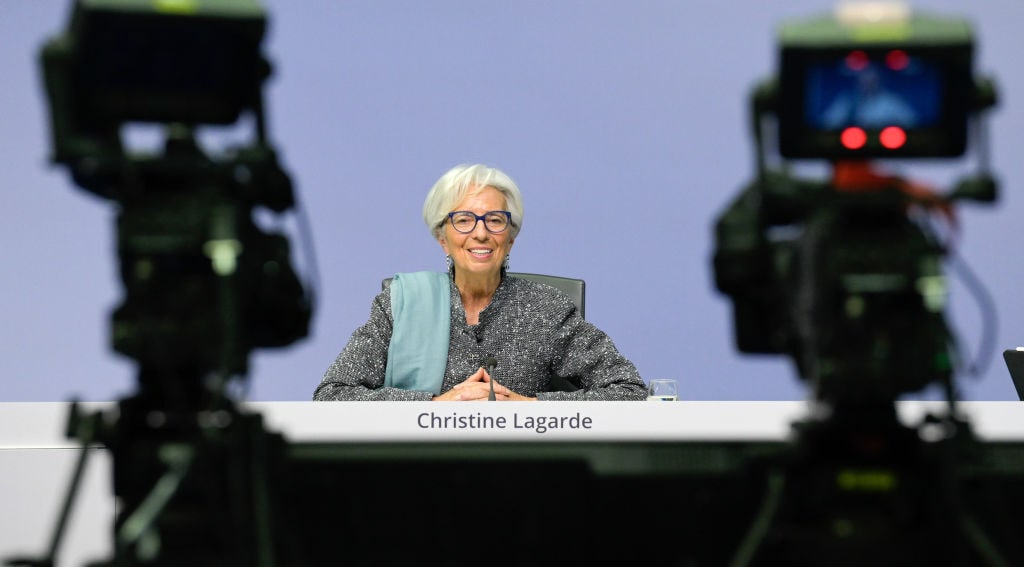Two days after Monday’s sharp falls, markets underwent a complete and utter mood change yesterday, with European stocks almost wiping out their losses for the week, with the FTSE 100 closing just below 7,000, only a day after hitting a three-month low. US 10-year yields also reversed course, as growth concerns subsided a touch.
US markets also recovered, and unlike markets in Europe did recover this week’s lost ground with last night’s positive close. Concern that rising Delta infections might slow down the economic rebound, appear to have been put to one side for now, after a day of positive trading updates that showed company’s might be able to meet full year expectations on revenues and profits after all.
Today’s European open looks as if it could well be a positive one ahead of today’s European Central Bank rate meeting, which given recent comments from ECB president Christine Lagarde, could prove much more insight into ECB policy over the next 18 months than had originally been thought two weeks ago. With the US Federal Reserve meeting also due next week, the next few days are likely to be crucial ones in respect of future policy considerations as Delta variant infections rise across the world. Up until recently there had been low expectations around this meeting after the last meeting saw the European Central Bank upgrade its GDP forecasts for 2021, from 4% to 4.6%.
In recent months there has been some underlying grumbling among Northern European countries about the pace of asset purchases and an insistence they must end by March 2022. With virus cases rising again and some parts of the European economy uniquely vulnerable to rising infection rates it seems highly unlikely that the ECB will ever be in a position to withdraw support at a time when economic activity remains far from returning to normal.
We’ve already heard that the ECB will be changing its inflation mandate to try and give itself more flexibility over monetary policy. Its previous mandate was to keep inflation at or below 2% over the medium term. Its new mandate gives the central bank a more flexible and dovish inflation target of 2%, while also adopting a 2% asymmetric inflation target over the medium-term. This change will allow the central bank to tolerate temporary inflation overshoots to its policy target, and in turn prevent policy mistakes of the kind that saw the ECB raise rates in 2008 and 2011. While an entirely sensible measure on the face of it, this can only be described as a change of style over substance, given the ECB’s complete lack of success in meeting its previous mandate.
We can expect to hear more about how the ECB expects to achieve this when Christine Lagarde gives her press conference later today, along with details on an upcoming policy shift on the forward guidance on the PEPP programme which she talked about earlier this month. Currently it sits at €1.85trn and is due to run to at least March 2022. This date could well get pushed out, given her comments that emergency stimulus will not be wound down any time soon.
Before recent events there might have been considerable resistance to an extension beyond March 2022, however the tragic floods across Western Europe might alter the narrative here due to the economic damage caused in Germany, Belgium, and the Netherlands. This could mean these guidance changes might get a more sympathetic hearing than was perhaps the case two weeks ago. Public spending in Germany was already on an upward track because of the pandemic, and recent events are likely to see this spending go even higher as the government looks to rebuild vast swathes of its flood damaged heartlands, in the coming months and years.
In March Germany planned to borrow €240.2bn this year, €60bn more than originally planned to help mitigate the pandemic. At the same time finance minister Olaf Scholz was also making plans for 2022, and extra borrowing of €81.5bn, taking the total to €320bn over the next two years. This number looks set to go higher given that Germany’s debt brake allows for net borrowing to increase in the event of an emergency. Recent events clearly meet this classification, and while there have been calls for a return to frugality once Covid has passed, there is the distinct likelihood that the floods could well alter the whole dynamic, when it comes to balanced budgets.
US weekly jobless claims are also due and are expected to fall modestly to 350,000 from 360,000.
EUR/USD – marginal new low but still held above the 1.1750 level yesterday. A move below 1.1750 reopens the March lows at 1.1700. We need to see a move through the 1.1880 level to signal a move to the 1.1975 area.
GBP/USD – found support above the 1.3570 level and February lows yesterday. We need to see a recovery back above the 1.3800 level to stabilise and minimise the risk of further losses.
EUR/GBP – yesterday’s squeeze ran into resistance just below 0.8680, slipping back towards the 0.8600 area. Support comes in at the 0.8580 level which needs to hold to prevent a return to the lows at 0.8520.
USD/JPY – continues to move higher after finding support at the 109.00 level earlier this week. has decent cloud support. A move above last week’s high at 110.65 opens a move towards the recent peaks at 111.65.
Disclaimer: CMC Markets is an order execution-only service. The material (whether or not it states any opinions) is for general information purposes only, and does not take into account your personal circumstances or objectives. Nothing in this material is (or should be considered to be) financial, investment or other advice on which reliance should be placed. No opinion given in the material constitutes a recommendation by CMC Markets or the author that any particular investment, security, transaction or investment strategy is suitable for any specific person. The material has not been prepared in accordance with legal requirements designed to promote the independence of investment research. Although we are not specifically prevented from dealing before providing this material, we do not seek to take advantage of the material prior to its dissemination.








